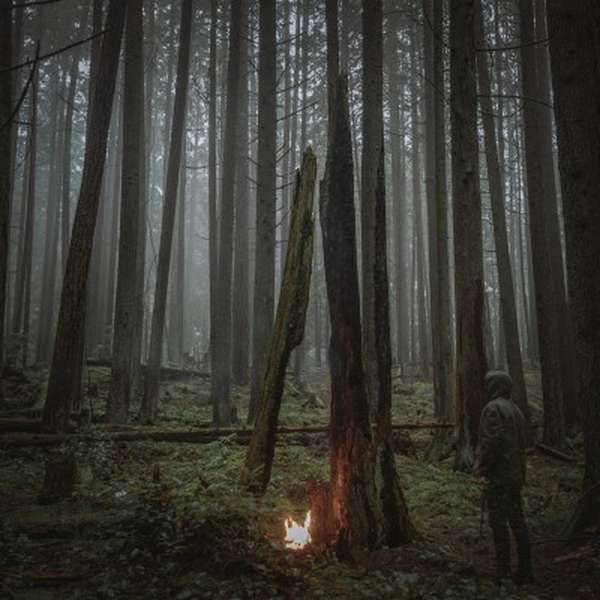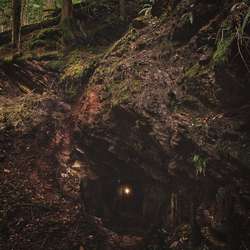Canadian hardcore is a weirdly veiled style. Like Canadian politics, it is highly deferential, often distinctly so. This means it both blends in with previous hardcore styles at the same time it writes original sounding songs, and it sounds highly derivative and mediocre despite the musician’s individual skill. Split in so many contradictory directions, Baptists newest release, Beacon of Faith, shows how the best musicians Canadian hardcore has to offer, can produce such an underwhelming record.
Fundamentally there’s nothing interesting or artistic about the album. Aside from the title track’s atheistic abreaction in monosyllables, the album is fundamentally secular, politically personal, and subtly ideological. Beacon of Faith is full of partly articulated ideas attached sometimes to ready-made ideological societal observations, and sometimes to general feelings of 'bleagh'.
I’m not sure if Baptists realize it, but adhering to such ready-made political shibboleths betrays a very important ethos of hardcore they unavoidably represent. Namely, what hardcore prides itself on is a type of rugged individualism that sets limits on communal authority, and demands thinking for yourself. Without a doubt Baptists favors the underprivileged, and underrepresented underdogs. Songs like “Victim Service”, and “Bevel Down” defend rape victims, and drug addicts, respectively. Similarly, “Carbide”, “Gift Taker”, and “Worse Than Hate” cleave critical chunks out of authoritative injustice, including gun regulation, unjust aristocracy, and corrupt democracy. But the ideology they tangentially point to prescribes an attitude less about strength of character, and more about how institutions are not functioning as they should. In other words, Beacon of Faith focuses on individual injustice, relays half expressed disgust and anger, inadvertently allowing an ideology that emphasizes deferential patchwork policies to control groups of people as a solution—all this fills the gaps in their half baked lyrics. This tendency to address societal issues using individual experience pulls the bands message in so many emotional directions. Because their lyrics lack artistic imagery, and don’t state their politics clearly, Beacon of Faith undercuts hardcore’s most empowering technique, and waters their compassionate message down simultaneously.
Even the music is derivative, heeding deference to the styles of Converge and Trap Them without the stick-to-itiveness that crafted such an original sound. Granted Kurt Ballou of Converge engineered this album in his studio, God City, I must concede the tempos, guitar riffs, and vocal cadence borrow markedly similar musical themes from No Heroes, and You Fail Me.
On the outset Beacon of Faith's revolutionary attitude fits the hardcore zeitgeist of the 80’s, reacting to Reagan era politics, wanting more individual and minority rights, and complaining that government only does bad. But they don’t match the Canadian context. Beacon of Faith is founded in a style steeped in hardcore values distinctly American, while maintaining Canadian values of social order, and the faith that government should do good. Essentially, the album is split between implicit Canadian values of community, egalitarianism, and social justice, and a revolutionary American spirit, and mistrust for authority.
The psychology of writing such a derivatively original album complicates further when obvious influences aren’t recognized. Their functioning so well within a borrowed style comes from how Canadians are raised by both our culture, and American entertainment. We’re raised on a desire to not be American, reinforced by comparing our ‘wins’ over their ‘losses’. Our healthcare works better, our banks function better, and we’re viewed as nicer people. To a certain extent, we can will those aspects to reality, but we forget we come from the same stock. We find the same things entertaining, we eat the same fast food—we all love Neil Young and Bruce Springsteen. So we both push America further and pull them closer. This creates a paralysis of influence that Canada glimmeringly shows, stunting the Canadian arts. Everything Canadian is in reference to America. And this, I suspect, is why Canada seems so underdeveloped artistically, and so undefined in style, despite the obvious talent that is nurtured above the 49th parallel.
Ultimately these forces are what make Beacon of Faith such an underwhelming release, yet enjoyable to listen, and respect. It doesn’t synthesize its influences into enough originality of spirit, but it mimics the best of the best with the best musicians Canada has to offer.




